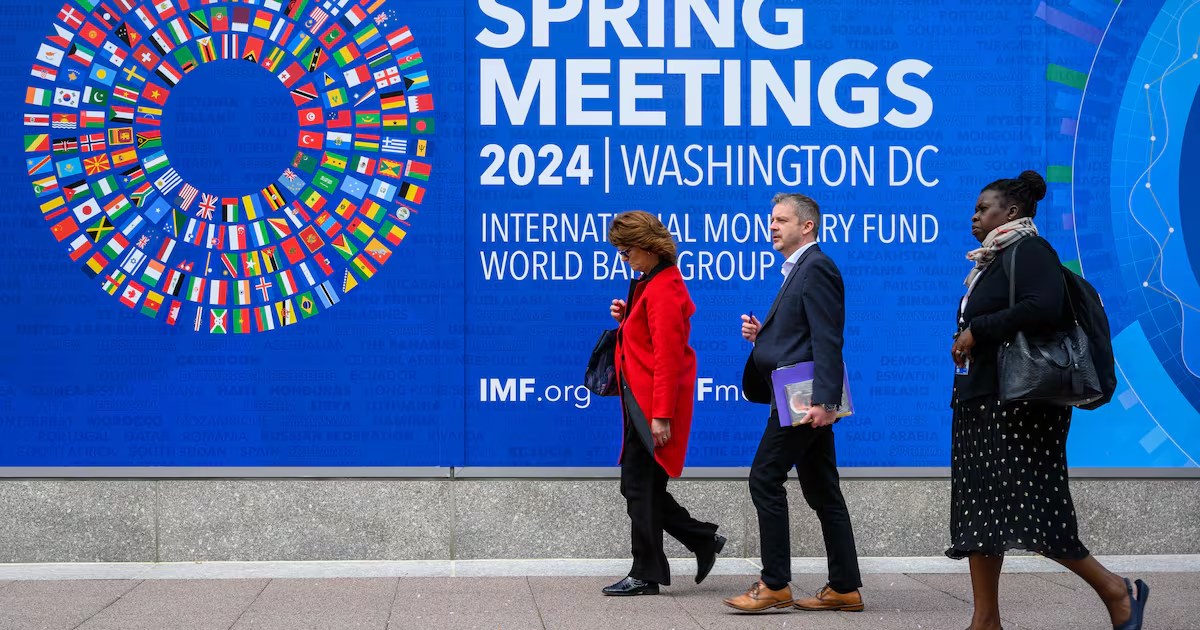The mood at the regular, spring meeting of global financial elites in Washington, sponsored by the International Monetary Fund (IMF) and the World Bank, was anything but festive, and instead the criticism was more and more focused on the United States.
As for Treasury Secretary Janet Yellen and the other U.S. officials, compliments were out of the question, so it was a no-back-patting event.
Under Joe Biden’s authority, the U.S. was ready to reap the benefits of its economic policies that it believed had improved the economies of the whole world.
Yet, there was another side story that was ready to unfold, painting a completely opposite image of the world’s largest economy, with allegations coming from all directions and covering conditions from policy mistakes to economic ineptitude.
Jerome Powell’s Interest Rate Announcement
The fear of Monday is that Monday was a terrible message from Federal Reserve Chair Jerome Powell. To calm down an “overheated” American economy, he unexpectedly and unfortunately declared that interest rates would remain high.
Markets worldwide shook, and governments all over the world are hurrying to understand how this will impact their economies.
The International Monetary Fund’s managing director, Kristalina Georgieva, did agree that the United States had done well in contributing to the growth in the global prediction, but she also added that the U.S. economy was “a little too bright not to be suspicious.
According to their calculations, the US fiscal imbalance, which Gita Gopinath, her vice president, and other financial leaders from around the world see as one of the key problems, is 7% of GDP. This amount renders the European Union’s 3% cap far too conservative.
The Vice President of the European Commission, Valdis Dombrovskis, openly criticized the US’s very strong expansionary budgetary approach during the meeting. He insinuated that the USA has to take a more conservative budget direction as the national debt continues to rise and the costs of paying the debt skyrocket.
In a diplomatic attempt, Christian Lindner, the German finance minister, could not help but point out the irony of Biden’s Inflation Reduction Act, which, in his opinion, made inflation worse.
The Global Implications of US Economic Policies Unveiled
The effects of US policies were global. Europe’s financial capitals, Brazil, and South Africa’s emerging markets feared that the high interest rates in the US would disrupt the global financial markets.
In their comments, the Governor of the South African Central Bank, Lesetja Kganyago, and Brazilian Finance Minister Fernando Haddad emphasized the interdependence of the global economy and the worldwide implications of US monetary policy.
Apart from fiscal measures, the trade measures of the United States were analyzed. The advocacy of Janet Yellen on supply chain “onshoring” and “friend-shoring” was criticized for distorting global economic stability and increasing inflation.
According to Catherine Mann of the Bank of England, the true costs of these shifts were underestimated, and that would lead to an increase in economic shocks and inflation volatility.
The U.S. directly expressed worries to Chinese leaders about China’s overly export-oriented economic growth concerning international trade relationships. All these attempts fell on deaf ears.
The premier of China, Li Qiang, at the Canton trade fair in Guangzhou emphasized increasing the global position of Chinese brands, suggesting a continued export focus.
A photo crystallized in my head over the past week. The IMF and its brethren are getting wary of U.S. economic policy. The week is an illustration of the concept that when the U.S. sneezes, the world gets a cold, showing that global economics is a feedback loop.


